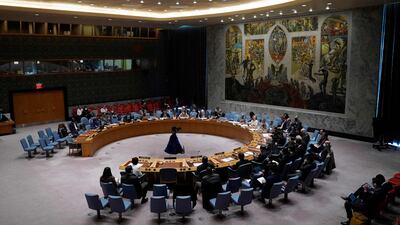Ukraine will be told to shop for its own weapons with €1 billion ($1.1bn) provided by its European neighbours, Germany said on Monday, amid mixed signals over its direct arms shipments to Ukraine.
The European Union’s 27 members were poised to agree the subsidy on Monday, said German Foreign Minister Annalena Baerbock, who said Ukraine needed more equipment to fight Russian forces she described as committing war crimes.
The money would be put in place so that “Ukraine can buy its own weapons or that countries who continue to deliver weapons are supported,” said Ms Baerbock as she arrived for the meeting in Brussels.
Defence Minister Christine Lambrecht had said on Sunday that direct shipments from Germany’s armed forces had been exhausted and that manufacturers would have to take up the baton of equipping Ukraine.
But the government’s chief spokesman Steffen Hebestreit said on Monday that some direct shipments would continue in a similar vein to previous shipments.
The ruling coalition agreed this month to send 1,000 anti-tank weapons and 500 surface-to-air missiles from its own military to Ukraine, as well as approving the export of weapons that once belonged to communist East Germany.
However, a report by newspaper Die Welt said the government’s deliveries had fallen short of expectations, with only 500 of the 2,700 Strela rockets promised to Ukraine at the start of March actually being delivered.
Ministers are refusing to comment on such details on the grounds that shipments could become targets for Russian air strikes in Ukraine — a threat made explicit by the country’s Foreign Minister Sergey Lavrov last week.
“We won’t talk about it in public because we are talking about life and death,” said Ms Baerbock.
She said the government would try to ensure that any orders placed with German arms manufacturers are fulfilled as soon as possible, after Die Welt separately reported that no such exports had yet taken place.
Many Nato countries have sent weapons to Ukraine without crossing the alliance’s red line that its own armed forces should not intervene in the war with Russia.
Kyiv has failed to persuade the US-led bloc to establish a no-fly zone to stop Russian bombardments, but has described air defence systems such as the Soviet-era S-300 as an alternative if closing the skies is not possible.
Ukraine’s armed forces already use the S-300 and credit it with destroying Russian aircraft and helicopters during the nearly month-long war.
Slovakia said on Sunday that it had received Patriot air defence systems from Germany and the Netherlands in a move towards freeing up its own stock of S-300s for export to Ukraine.
The EU member had said last week that it was willing to make such a shipment if it received a replacement for its S-300s, but visiting US Defence Secretary Lloyd Austin did not make such a promise.
The US Army describes the Patriot as its most advanced air defence system, capable of taking down both war planes and tactical ballistic missiles up to an altitude of 20 kilometres.
From the Russian side, Mr Lavrov said Moscow had a veto on exports of the Soviet and Russian-made S-300 and described weapons being imported to Ukraine as “fair game” for military attacks.
Ms Baerbock said Russia had used the suspicion of weapons deliveries as cover for some of its bombardments in Ukraine, which western powers say have included attacks on schools, hospitals and other civilian infrastructure.
































